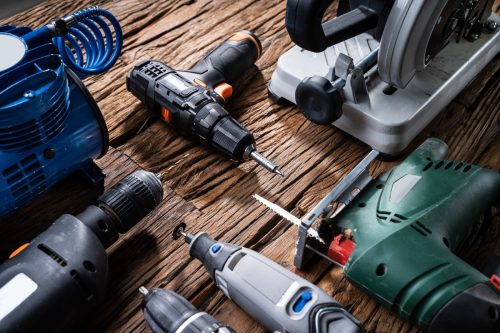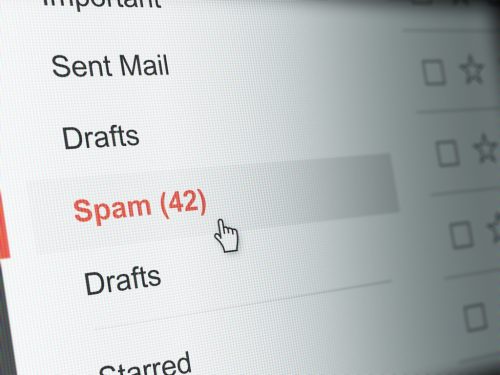Why You Keep Getting Scam Emails From “Ace Hardware,” and How to Stop Them

No one is immune to scammers, who are always looking for new ways to trick you and steal your hard-earned cash. In the latest development, fraudsters are taking on a new identity: Ace Hardware. If you’ve received questionable emails from the beloved hardware store, you’re not alone, as these missives were particularly prevalent at the end of 2022 and seem to be carrying through to the new year. Read on to find out why you’re getting so many “Ace Hardware” scam emails, and how tech experts say you can stop them.
READ THIS NEXT: Amazon Scam Tricks You Into Giving Up Control of Your Computer.
These emails offer the chance to win big.

Unfortunately, even trained eyes can sometimes fall for scam emails—and when a deal sounds so good, you might feel inclined to fill out the survey or follow a link to get a reward. That’s exactly the kind of scam you have to look out for from “Ace Hardware.”
The latest round of emails might have a subject line that reads, “You’ve been chosen!” In the body of the message, scammers say you can answer and win a power tool, like a Milwaukee drill, Wired reported, or a DeWalt power station. The email will then have a button for you to “confirm” or “get started,” but be warned that it’s all a trick to steal your personal info.
Similar emails promise other gifts or prizes for taking a marketing survey, according to a Jan. 25 Facebook post from the North Webster Ace Hardware in Indiana.
However, like most things that sound too good to be true, these emails should send up red flags.
The influx of emails could be due to the brand and its inventory.

Experts attribute the uptick in Ace Hardware scam emails to the fact that the brand is well-known and respected.
“Why Ace Hardware in particular? Likely because it’s a company that people trust, and scammers know that people are more likely to fall for a scam if it seems to be coming from a reputable source,” Donald Lewis, senior developer at Indivisible Game, tells Best Life.
Like Home Depot and Lowe’s, Ace also sells pricier items, like power tools, which are that much more enticing for scammers to dangle as bait, says Shahnawaz Sadique, founder of the technology and gaming site CommonStupidMan.com.
But if you’ve been inundated with these emails—or if you’ve almost fallen for their tricks—there are ways to limit the number flooding your inbox.
RELATED: For more up-to-date information, sign up for our daily newsletter.
Be proactive when you can.

If you take a look at your spam or junk folder, chances are it’s chock-full of messages that your email provider already identified as questionable. But there are messages that bypass these nifty filters, and when you get them, you should flag them as spam.
This will help control control the number of scam emails that you get—and help your email provider better identify similar emails in the future. After that, take a moment to block the sender too, Sadique says.
Lewis also recommends ensuring your anti-virus and spam software is up to snuff, or perhaps investing in an updated tool. “This first thing is to make sure that you have strong anti-virus and anti-spam software installed on your computer, and that you keep them up-to-date,” he explains, adding that you should always be wary of clicking or opening links that seem sketchy.
Ace is aware of the issue.

Ace Hardware outlines the common email and text message scams on its Digital Safety Awareness page, which include typical phishing emails looking to steal your login information, survey rewards, free gift card or prize giveaways, as well as a variety of gift card scams.
The company confirms that it “will never ask customers for payment information as part of any survey or promotion.” However, if you receive the phishing survey email, you can report it to [email protected] (with the phishing email as an attachment) and then delete the malicious message.
The company also recommends reporting the email to the Federal Trade Commission (FTC) by forwarding the email to [email protected], and to the Anti-Phishing Working Group by forwarding the email to [email protected].
Best Life reached out to Ace Hardware for comment on the latest influx of these messages, but has yet to hear back.